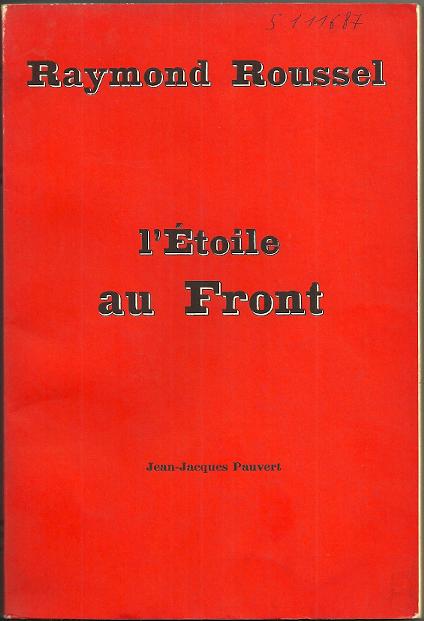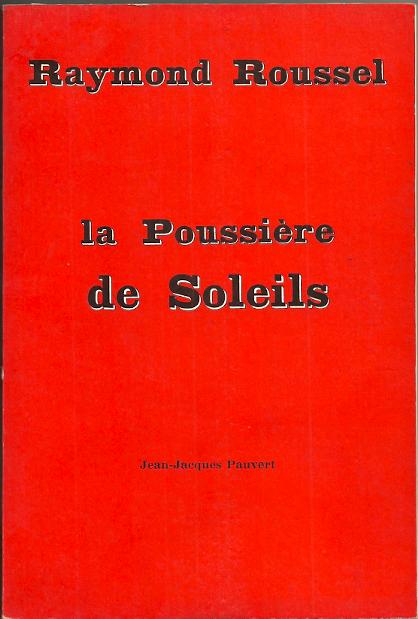
This “Crazy Eights” deck comes with no indication of date or publisher. It has perforated edges, so maybe it was sold as a sheet. It bears images of animals carrying numerals: raccoon, bear, rabbit, pig, squirrel, lamb, duck, and kitten. For some reason, the first four are set against a yellow background, and the last four against blue. I like the silhouettes on the back.

(Posted by Doug Skinner)
Tags: Card Games
May 12th, 2014 · Comments Off on Richard Shaver on Time and Space
Every now and then, we like to post something about Richard Shaver. Here we have some of his ruminations on time and space, and, at the end, a bit about tuna. (Please click to enlarge.)

(Posted by Doug Skinner)
Tags: Ancient History · Literature

“Animal Families” was published by the venerable Austrian firm Piatnik; no date is given. The artwork is, however, credited: “After the original paintings by Hubert Lechner (Vienna Academy).”
There are ten “families”: Deer, Domestic Animals, Fresh-Water Fish, Salt-Water Fish, African Animals, Birds of Prey, Parrots, Humming-Birds, Finches, and Indian Animals. A curious system of classification, but as good as any other, I suppose.
(Posted by Doug Skinner)
Tags: Card Games
April 15th, 2014 · Comments Off on Bulletin (28)
There is a nice of review of my illustrated translation of Captain Cap, by Alphonse Allais, over at Tam Tam Books. You can purchase a copy from Amazon, you know.
I’m happy to report that I’ve been nominated for a Pushcart Prize, for my comic strip “Shorten the Classics: Moby Dick,” in Black Scat Review #2. Melville and I are honored.
My upcoming publications from Black Scat Books include The Unknown Adjective, and Other Stories, containing 100 pages of my comics and picture stories (June), and an edition of Alphonse Allais’s plays and monologues, in my translation (July).
Both Anthony Matt and I will appear in the “Congress of Curious Peoples,” at Coney Island, on May 1. I’ll be talking about the “Hermes Project,” the attempt by Richard Shaver’s fans to build the machines from his stories; Anthony will discuss a variety of healing machines. Also on the bill will be Shannon Taggart, on Kirlian photography, and James Riley, on William Burroughs’s use of tape recorders. There is info here.
(Posted by Doug Skinner)
Tags: Alphonse Allais · Bulletins

I’m going to return to posting children’s card games. Maybe I’ll post another 200. For those who came in late, my interest is in the anonymous graphics and cultural footnotes found in this most disposable of genres.
The gentleman above is from a deck of “Snap,” undated, and identified only as “British Manufacture.” Cursory research tells me that “hokey pokey” was late 19th century slang for ice cream, particularly that sold by Italian street vendors; it also sometimes meant toffee, or ice cream with toffee, but apparently mostly in New Zealand.
All of the cards represent street vendors and their cries, giving a charming glimpse of life in the UK at that time; although I hope the real vendors didn’t have such large heads. The others are: “Scissors to Grind!”, “Chairs to Mend!”, “Coals!”, “Winners!” (racetrack results, I imagine), “Cat’s Meat!”, “1d a Bunch!” (flowers), “Sweep!” (chimney sweep), “1d All the Way!” (streetcar conductor), “Muffins O!”, “Old Clo’!”, and “”All a Growing!” (plants).
(Posted by Doug Skinner)
Tags: Card Games
When I travel, my favorite souvenirs are the small, overlooked items, particularly those sporting liminal, anonymous graphics. Here, for example, are some of the salt packets I collected on a trip to Buenos Aires last year. I particularly like the first. It’s Attic salt!

(Posted by Doug Skinner)
Tags: Liminal Graphics · Places
March 20th, 2014 · Comments Off on Spring
Spring is here. It’s been a particularly harsh winter here in NYC. I hope that this magic lantern panorama slide heralds better times.

(Posted by Doug Skinner)
Tags: Liminal Graphics
There has been increased interest in comics reprints in recent years, with many classic strips getting overdue recognition. One of my favorites, though, has been overlooked: “Little Jimmy,” by James Swinnerton. Swinnerton drew the strip from 1904 to 1958, off and on; it was also known, with customary insouciance, as “Little Jimmie,” or just “Jimmy.” In the early years, the gags used a simple formula: Jimmy was sent on an errand, became distracted, and some level of chaos ensued. In later years, the strip became more about Swinnerton’s love of the Southwest, and his admiration for Navajo culture. Throughout, both his writing and artwork were fresh, open, and unforced, a treat to the eye. He also had one endearing eccentricity: the dialogue in the balloons was always enclosed in quotation marks.
Many years ago, I found some “Little Jimmy” scrapbooks in a used bookstore in Amsterdam. Some fan had cut up Sunday pages, and pasted the panels into little oblong books. Here’s one of them, from May 20, 1917.








(Posted by Doug Skinner)
Tags: Cartoons
February 25th, 2014 · Comments Off on Bulletin (27)
Black Scat Review #6 is now out! It contains my translation of an 1897 monologue by Jules Moy, “The Unicolorist,” prefaced with an article on the comic tradition of monochromatic painting. It also contains work by Nin Andrews, Emily June Brink, Eckhard Gerdes, Michelle Gray, Judson Hamilton, Sarah Katharina Kayß, Adam Miller, Ivan de Monbrison, Opal Louis Nations, Brett Stout, Joanna C. Valente, and Sayuri Yamada; plus an extensive interview with Yuriy Tarnawsky on the release of The Placebo Effect Trilogy. And you can find it at Black Scat Books.
I will be reading some of my comics and picture stories as they’re projected on a wall, at R. Sikoryak’s series “Carousel,” at 7:30 pm, Wednesday, March 5, at Dixon Place, 161A Chrystie St., NYC. Also on the bill will Nick Bertozzi, Liza Donnelly, Trade Loeffler, Flash Rosenberg, and The Walking Hellos.
My ukulele students will take the stage at Jalopy Theater, 315 Columbia St., Brooklyn, for a student recital on Thursday, March 6 at 7 pm. Come cheer them on!
(Posted by Doug Skinner)
Tags: Bulletins
February 14th, 2014 · 3 Comments


Raymond Roussel’s two plays, l’Étoile au Front (The Star on the Brow, 1924) and la Poussière de Soleils (The Dust of Suns, 1926), bear titles that have long intrigued Rousselians. In each case, the title bears little or no relation to the play, and is mentioned only at the end, in a rhetorical flourish. In the former, the last scene shows the character Joussac giving an engaged couple a book called The Predestined, a history of great creators marked since birth with the “star on the brow,” the sign of genius. In the latter, again in the last scene, another couple parts, deciding to look up at the night sky when separated, not at a star or constellation, but at a nebula, a “dust of suns.”
Perhaps the star on the brow was Roussel’s own memory of the “glory” he felt when writing his early works, his conviction that he was destined for fame. And perhaps the dust of suns was a reference to the astronomer Camille Flammarion, whom Roussel admired, and who wrote fervently about the infinitude of worlds in the cosmos.
But I was surprised to find both phrases in an unexpected place: Arthur Edward Waite’s novel The Quest of the Golden Stairs (1927, conflating two stories originally published in 1889 and 1893). Waite, for those unfamiliar with him, was a member of the Hermetic Order of the Golden Dawn back in its Victorian heyday, and wrote many books on the occult. The novel is precious and pompous, and uses the word “faërie” far too often for my taste. But here is the relevant passage, on page 36: “O Stars on the forehead in Faërie, with other wonders of vesture and high adornment, it is love that lights faces in Faërie, and they shine with their own light.” And on page 145: “On the summit Prince Starbeam paused and taking up fine sand he cast it into the air. A light breeze rose and bore it to a broad white road, where it fell as a dust of stars.” Well, yes, they’re stars, not suns; but the image is the same, and the reference just as gratuitous.
All of which makes me wonder if both phrases had some significance in occult or hermetic tradition. Breton’s suspicion that Roussel was an occultist has mostly been dismissed by later biographers; and the curious rumors linking Roussel to the pseudonymous alchemist Fulcanelli remain unproven. But there may be some source that appealed to both Waite and Roussel. I’d be interested in other uses of both phrases.
(Posted by Doug Skinner)
Tags: Literature

















